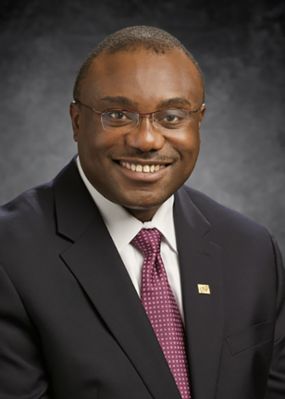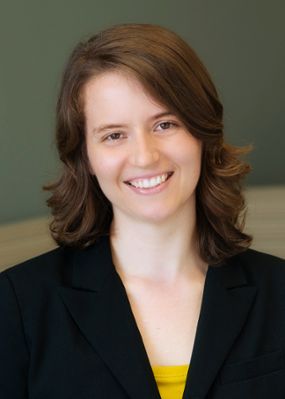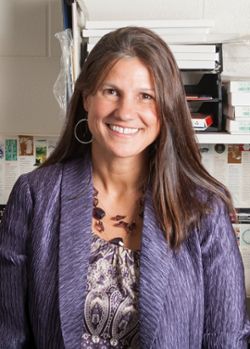MSU College of Natural Science names 2021 award winners
The Michigan State University College of Natural Science (NatSci) has selected several alumni, faculty and students for outstanding achievements and excellence.
Patrick Lukulay (Ph.D., analytical chemistry, ’95) received the 2021 Outstanding Alumni Award; Shannon Morey (B.S., chemistry, ’10) received the 2021 Recent Alumni Award; and Shannon Manning, MSU Foundation Professor of Microbiology and Molecular Genetics, received the 2021 Meritorious Faculty Award.

Lukulay is founder (2018) and president of Technology Solutions for Global Health (Tech-4Health). After receiving his advanced degrees, Lukulay worked first for Wyeth and then Pfizer, where he led teams of analytical chemists to support drug discovery and development efforts. In 2007, he joined United States Pharmacopeia (USP), where he became vice president of USP’s Global Health Impact Programs. Working with USAID, WHO, the Gates Foundation and others, he directed programs aimed at promoting drug quality in developing countries. He envisioned and orchestrated the establishment of USP’s Center for Pharmaceutical Advancement and Training (CePAT) in Ghana (now called USP-Ghana), which trains sub-Saharan regulatory authorities to recognize possible counterfeit drugs and provides state-of-the-art analytics to determine their authenticity. He established the Lukulay Foundation to provide scholarships to needy students in his alma mater high school in Sierra Leone, and to provide medical supplies on a yearly basis to his home village. He also serves in numerous advisory roles, including Medicines for Africa, the COVID-19 Clinical Research Coalition and Bloom Public Health and is a board member of the Healy Foundation, a charitable organization supporting orphans and clinics in Sierra Leone.

Morey has taught in the most vulnerable communities in Massachusetts since completing her graduate degree and becoming a full-time educator. She currently teaches physics, chemistry and robotics at Abbott Lawrence Academy, and previously taught at East Boston High School. Both student populations are drawn from predominantly urban, low-income, Latinx immigrant communities. In her physics classes, students learn physics while expressing themselves through building cardboard pinball machines, creating electrified canvas art and programming original animations. She has also innovated modeling and project-based learning curricula; initiated AP Physics and AP Chemistry courses; and given generously of her time as a science fair organizer, student government advisor and scholarship coordinator. From 2013-2014, she was the director of education for Science from Scientists, a prominent national science education nonprofit. She has founded three volunteer-led nonprofit organizations: BiteScis, which pairs graduate student researchers with professional teachers to develop original, standards-aligned, research-oriented lesson plans published free online; ComSciCon, a national workshop for graduate students interested in science communication; and Chembites, the reader’s digest for the chemistry research literature authored collaboratively by graduate students from around the country. She was the recipient of the prestigious Knowles Science Teaching Fellowship in 2015.

Manning played a crucial role in helping to solve the mystery behind one of the most deadly E. coli outbreaks ever, which killed more than 50 people and sickened nearly 4,000 in Germany in 2011. Her research, which she has described as “an evolutionary arms race at the molecular level,” focuses on applying molecular and evolutionary tools to investigate the virulence, epidemiology and evolution of bacterial pathogens—including Campylobacter jejuni, Shiga toxin–producing E. coli (STEC), Salmonella, and group B Streptococcus. Manning and her team are decoding pathogens to help with the development of new vaccines and therapeutics. Prior to joining the MSU faculty in 2004, Manning was an Emerging Infectious Diseases Research Fellow with the U.S. Centers for Disease Control and Prevention/Association of Public Health Laboratories. She has contributed to more than 90 scientific publications in journals such as Clinical Infectious Diseases, Scientific Reports and Emerging Infectious Diseases. In addition, she has been highly supportive of the many postdocs (18), graduate students (25), and undergraduate students (33) associated with her lab over the years, including their receipt of more than 80 mentee awards and honors. Manning received the Best Mentor Award from the National Postdoctoral Association (2016) and the Outstanding Academic Advisor Award from MSU’s College of Natural Science (2017).
In addition to these honors, several NatSci graduate and undergraduate students were recognized for their outstanding contributions.
Keenan Noyes, chemistry; and Patricia Perez-Bonilla, neuroscience and pharmacology/toxicology, received Tracy A. Hammer Graduate Student Awards.
Four students received the Dan Bolin Undergraduate Student Award—Shivam Chandra, human biology (minor in bioethics); Cynthia Sridhar, neuroscience (additional major in sociology and minor in bioethics); Megan Thorn, human biology (minor in health promotion); and Nicole Vezina, biomedical laboratory science.
Banner image: The College of Natural Science at Michigan State University is home to 27 departments and programs in the biological, physical and mathematical sciences. The college provides world-class educational opportunities to more than 5,500 undergraduate majors and 1,200 graduate and postdoctoral students. There are 868 faculty and academic staff associated with NatSci, and more than 63,000 living alumni worldwide. Credit: Harley J. Seeley